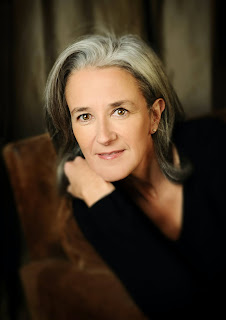Connections...
Connections….
The workshop and the film India Horse have a lot in
common. Both are about Native People and detail their lives in the early
nineteenth century. Indian Horse is a film about a Native Canadian named Saul
Indian Horse who escapes residential school and lives in the 1970s among
racism. He excelled as a hockey player, but he must make his own path as he
battles discrimination and alcoholism. Throughout the film, I was able to feel
in a more tender way the emotions that Native people experience when they are
urged to forget who they are and become someone they don't know. For example,
they were compelled to learn a religion against their choice and to speak a
language that some did not even know how to speak in school residences created
just for them. Most of the students at these schools were abused and were
unable to see their parents. I became aware of the atrocities that these group
of individuals had to endure while watching the film, and I had the opportunity
to learn more about them during the workshop. By participating in living
simulation exercises, I was able to put myself in their shoes. I took up the
game and lived the whole experience as one of the children sent to its
tyrannical schoolhouses. I'll never understand native people's suffering, but I
can sympathize and hope that it doesn't happen again. On an emotional level,
the movie and the Workshop are very similar.
Sarah's key novel shares a lot of similarities with
the film Indian horse. Both the film and the literature depict the history of
an ethnic group that has been subjected to racism in all its forms. The first
link between the two is that both Jews and Indigenous People were removed from
their homes and sent to places that would become their darkest nightmares.
Sarah's family is caught in the middle of the night and brought to camp, where
they won't be able to live a normal life. In the film India Horse, native
children are transported away from their relatives in the hopes of educating
them, but it turns out to be more like torturing them. Both Jews and Native
Peoples were forced to hide their identities to appease those who didn't like
who they were and some of them even lose themselves. They were forced to obey
their orders against their choice. Obstruction of liberty is the concept that
comes to me when I think about this. Others exert pressure on both ethnic
groups, and they are unable to enjoy the freedom they deserve. In both the film
and the novel, Jews and native peoples were mistreated and sent to
concentration camps for Jews and residential schools for Native children, where
they both suffered atrocities that no human being should suffer, such as
physical abuse, starvation, and multiple traumas that left lasting effects.
Finally, I enjoy the workshop activity; I've never
experienced anything like it, where I was told to put myself in someone else's
shoes and live in their predicament. I appreciate that we were not obligated to
act or do anything because I was uncomfortable with this. Instead, I pretended
to be a member of one of the indigenous communities and immersed myself in
their circumstances. Because I could, I was able to live a life similar that of
mistreated indigenous people. We've been told about what occurred to Native
people since we were in high school, but I had no idea it was still going on
until the workshop. That indigenous people's voices were still not being heard
after all these years. During this activity, I did learn a lot. Fun fact or sad
fact: I had no idea there were 13 native people nations, and I had no idea what
their names were. I would highly suggest this workshop because, no matter how
awful someone's history is, the best way to comprehend it is to live it, and I
would make no changes to this workshop. As stated, Rachel Gary: “Always put yourself in others’
shoes. If you feel that it hurts you, it probably hurts the other person, too.”



I really love how you described the film and the workshop, you used precises words. I think the last sentence of your second paragraph could be cut in half, but in general everything is great.
RépondreSupprimerI really enjoyed reading your blog! Your texte is easy to understand due to the fact that it is separated in different paragraphs. I also love the fact that you decided to conclude your text with a quote. However, do not forget to italicize the title of the movie. Good job!
RépondreSupprimerIn my last comment, I meant to write text not texte !
Supprimer